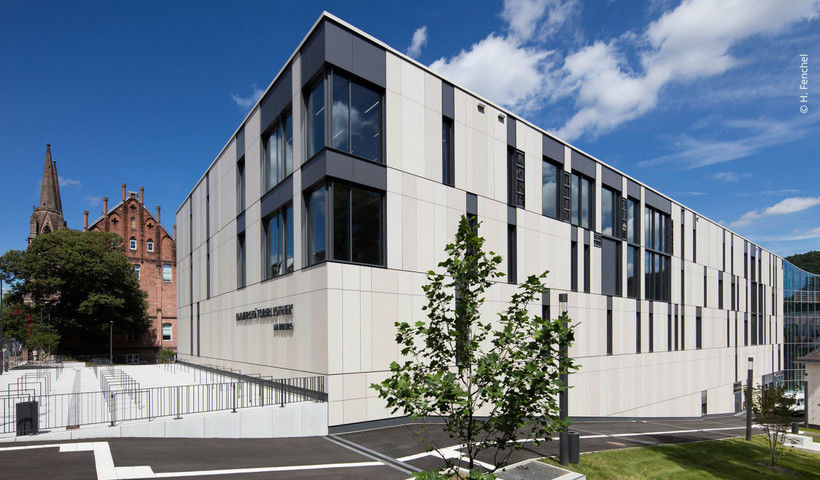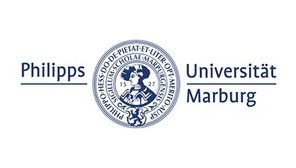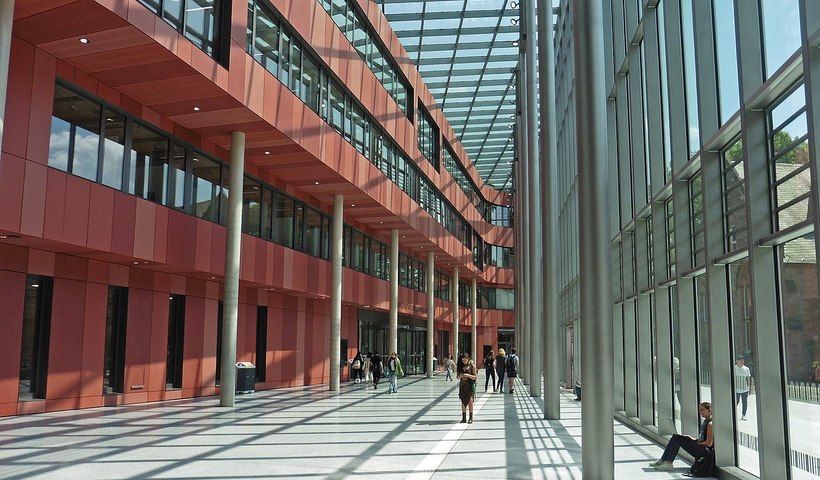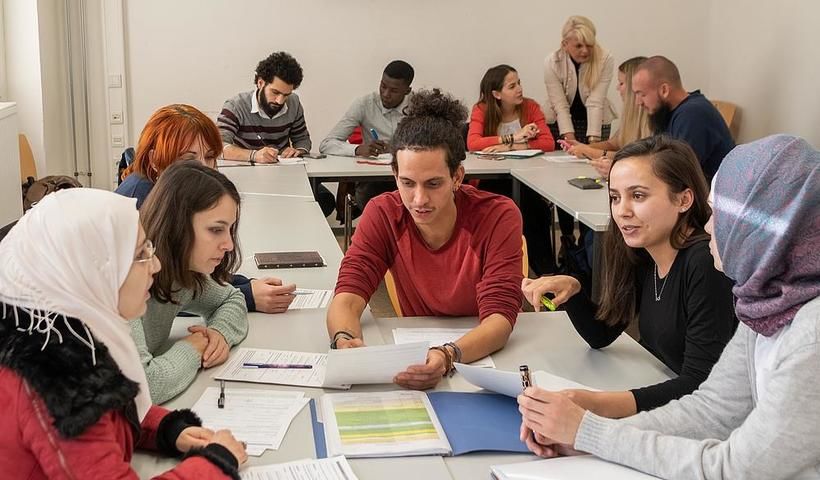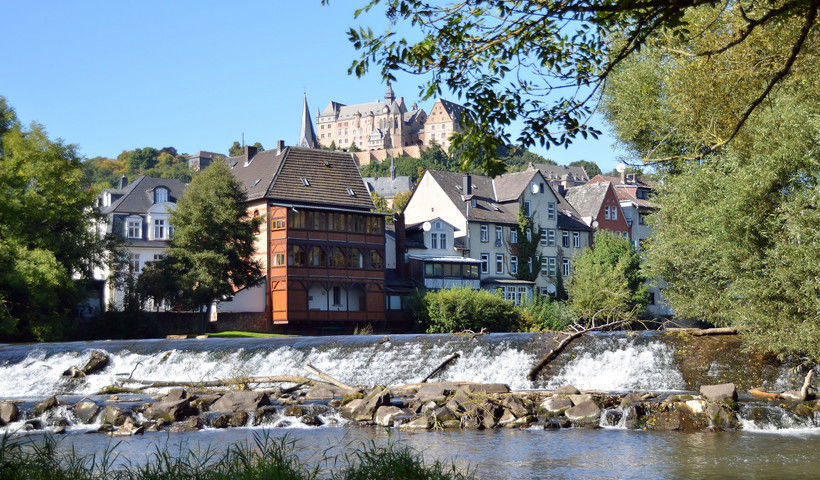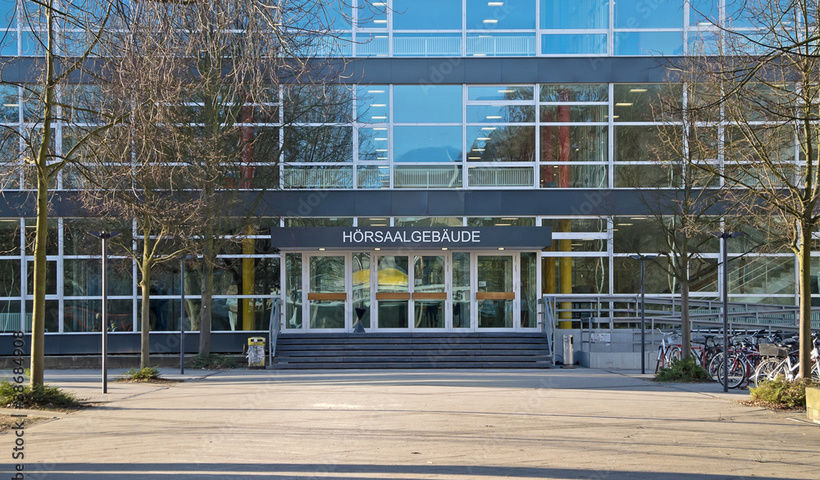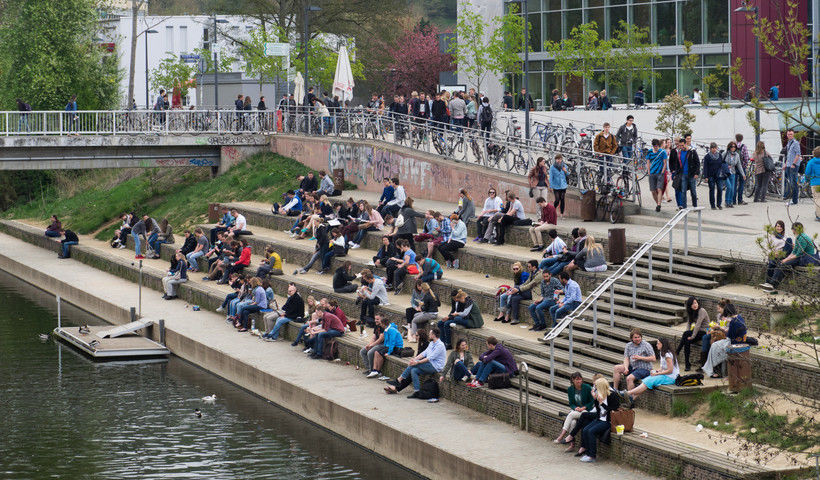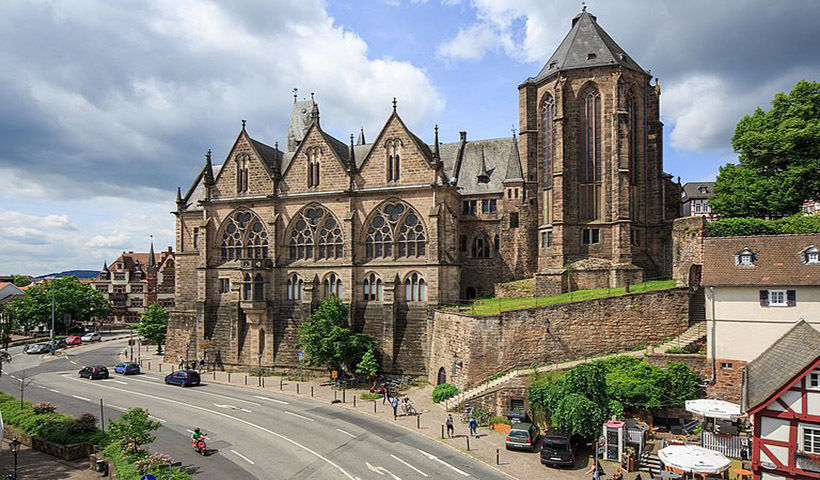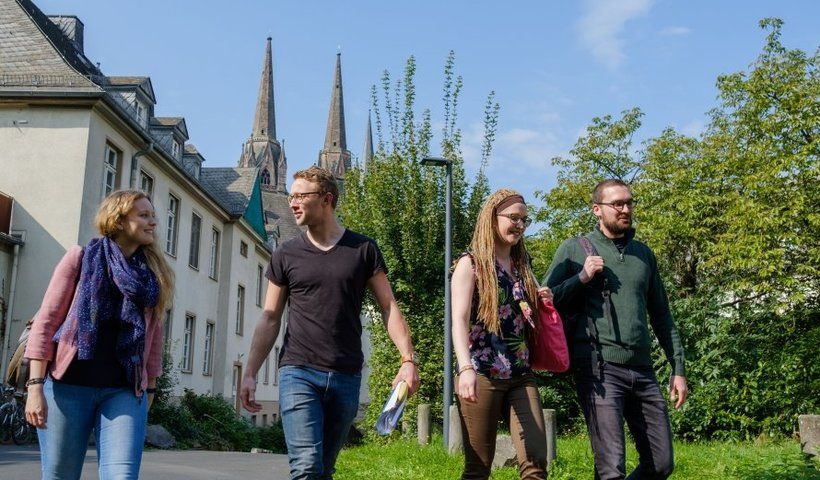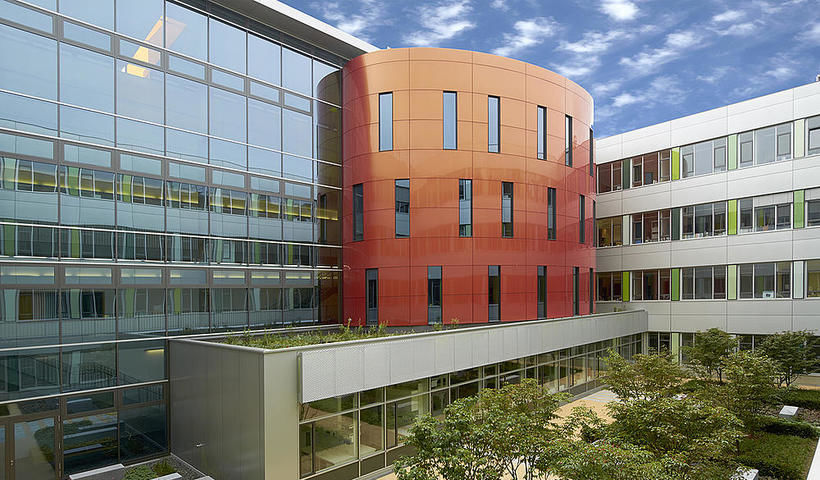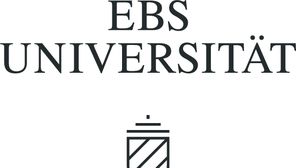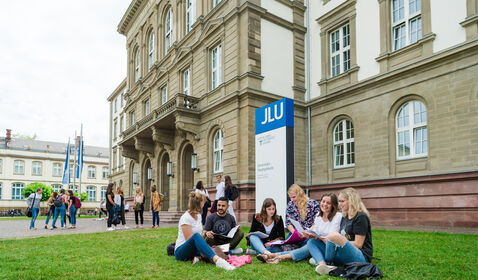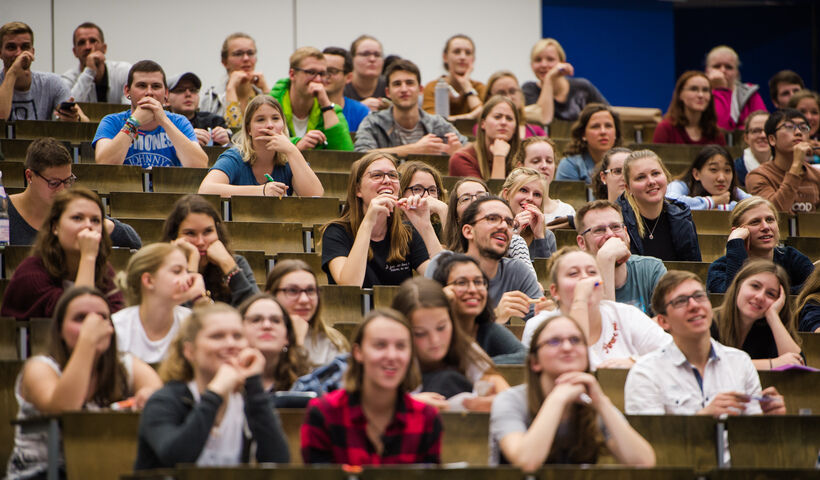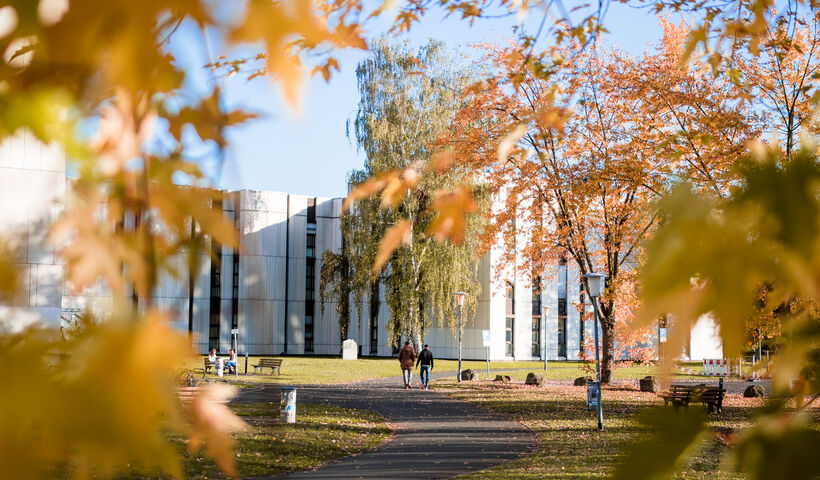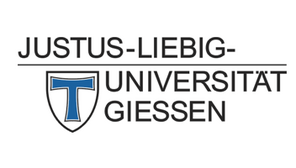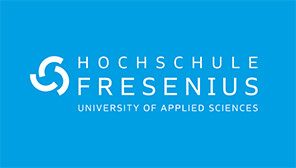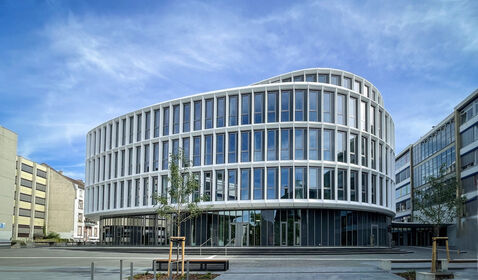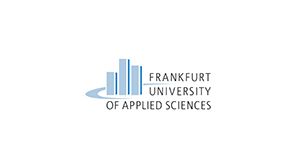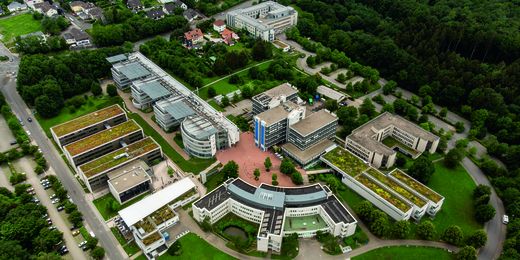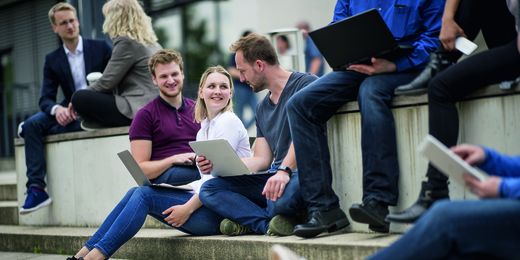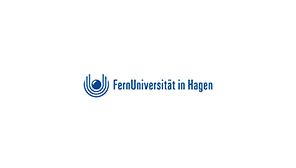Philipps-Universität Marburg
- Promotionsrecht: Ja
- Trägerschaft: öffentlich-rechtlich
- 1527 gegründet
- 21.237 Studierende
Studieren, was Sinn ergibt: Welcher Studiengang passt zu dir?
Die Uni Marburg bietet dir Studiengänge in nahezu allen wissenschaftlichen Disziplinen an. Insgesamt kannst du aus über 200 Studiengängen und -fächern wählen.
Wenn du dich für ein Bachelor-Studium interessierst, kannst du entweder im Mono-Bachelor eine Fachrichtung intensiv studieren oder im Kombi-Bachelor verschiedene Studienfächer nach deinen Interessen kombinieren. Hinzu kommen bei beiden Varianten die „MarkSkills“. Dieser Studienbereich vermittelt dir fachliche Kompetenzen und Soft-Skills, die du zum Beispiel für deinen späteren Beruf gut gebrauchen kannst.
Neben den Bachelor-Studiengängen gibt es auch noch eine Vielzahl an Master-Studiengängen sowie Staatsexamensfächer wie zum Beispiel Rechtswissenschaft, Medizin oder Pharmazie. Außerdem gibt es an der Uni Marburg über 20 Gymnasial-Lehramtsfächer und Fächer mit kirchlichem Abschluss.
Welcher Studiengang passt zu dir?
Eine Übersicht zum Marburger Studienangebot findest du hier.
Stimmen von Studierenden
Biegenstraße 10
35037 Marburg
Tel: 06421 28-20
Fax: 06421 28-22500
Hochschule im CHE-Ranking abschneiden.
Die Philipps-Universität Marburg gehört zu den Universitäten.
Ja, du kannst an der Philipps-Universität Marburg promovieren.
Die Philipps-Universität Marburg ist eine öffentlich-rechtliche Hochschule. Es gibt staatliche und staatlich anerkannte Hochschulen, die meist in Universitäten, Fachhochschulen (international: University of Applied Sciences) und Kunst- sowie Musikhochschulen unterteilt werden. Der überwiegende Teil der Hochschulen wird vom Staat finanziert und befindet sich daher in staatlicher Trägerschaft. Dort fallen in der Regel nur geringe Semesterbeiträge an. An den privaten Hochschulen hingegen, die sich über private Trägerschaften finanzieren, können wesentlich höhere Studiengebühren anfallen. Einen Weg, die finanziellen Hürden dieser Hochschulen zu umgehen, können Stipendien darstellen.
Es gibt außerdem Hochschulen, die von der protestantischen oder katholischen Kirche betrieben werden.
Die Philipps-Universität Marburg wurde im Jahr 1527 gegründet.
Insgesamt gibt es 21237 Studierende an der Philipps-Universität Marburg.
Standort dieser Hochschule ist Marburg.
Hier findest du die Fristen und Termine für deine Bewerbung:
- Vorlesungszeit:
-
14.10.2024 - 14.02.2025Veranstaltungsfreie Zeit über Weihnachten: 23.12.2024 - 10.01.2025
Die Semestertermine finden Sie hier:
https://www.uni-marburg.de/de/studium/studienorganisation/semestertermine
- Studienanfänger:
-
Die Bewerbungsfristen für Studiengänge an der Philipps-Universität Marburg können Sie unserer Hochschul-Homepage unter folgendem Link entnehmen:
www.uni-marburg.de/de/studium/bewerbung/bewerbungsfristen
- Hochschulwechsler:
-
Die Bewerbungsfristen für Studiengänge an der Philipps-Universität Marburg können Sie unserer Hochschul-Homepage unter folgendem Link entnehmen:
www.uni-marburg.de/de/studium/bewerbung/bewerbungsfristen
- International Studierende aus der Europäischen Union:
-
Die Bewerbungsfristen für Studiengänge an der Philipps-Universität Marburg können Sie unserer Hochschul-Homepage unter folgendem Link entnehmen:
www.uni-marburg.de/de/studium/bewerbung/bewerbungsfristen
- International Studierende aus Staaten, die nicht Mitglied der EU sind:
-
Die Bewerbungsfristen für Studiengänge an der Philipps-Universität Marburg können Sie unserer Hochschul-Homepage unter folgendem Link entnehmen:
www.uni-marburg.de/de/studium/bewerbung/bewerbungsfristen
- Studienanfänger:
-
01.06.2024 - 15.07.2024Die Bewerbungsfristen für Studiengänge an der Philipps-Universität Marburg können Sie unserer Hochschul-Homepage unter folgendem Link entnehmen:
www.uni-marburg.de/de/studium/bewerbung/bewerbungsfristen
- Hochschulwechsler:
-
Die Bewerbungsfristen für Studiengänge an der Philipps-Universität Marburg können Sie unserer Hochschul-Homepage unter folgendem Link entnehmen:
www.uni-marburg.de/de/studium/bewerbung/bewerbungsfristen
- International Studierende aus der Europäischen Union:
-
Die Bewerbungsfristen für Studiengänge an der Philipps-Universität Marburg können Sie unserer Hochschul-Homepage unter folgendem Link entnehmen:
www.uni-marburg.de/de/studium/bewerbung/bewerbungsfristen
- International Studierende aus Staaten, die nicht Mitglied der EU sind:
-
Die Bewerbungsfristen für Studiengänge an der Philipps-Universität Marburg können Sie unserer Hochschul-Homepage unter folgendem Link entnehmen:
www.uni-marburg.de/de/studium/bewerbung/bewerbungsfristen
- Studienanfänger:
-
Die Bewerbungsfristen für Studiengänge an der Philipps-Universität Marburg können Sie unserer Hochschul-Homepage unter folgendem Link entnehmen:
www.uni-marburg.de/de/studium/bewerbung/bewerbungsfristen
- Hochschulwechsler:
-
Die Bewerbungsfristen für Studiengänge an der Philipps-Universität Marburg können Sie unserer Hochschul-Homepage unter folgendem Link entnehmen:
www.uni-marburg.de/de/studium/bewerbung/bewerbungsfristen
- International Studierende aus der Europäischen Union:
-
Die Bewerbungsfristen für Studiengänge an der Philipps-Universität Marburg können Sie unserer Hochschul-Homepage unter folgendem Link entnehmen:
www.uni-marburg.de/de/studium/bewerbung/bewerbungsfristen
- International Studierende aus Staaten, die nicht Mitglied der EU sind:
-
Die Bewerbungsfristen für Studiengänge an der Philipps-Universität Marburg können Sie unserer Hochschul-Homepage unter folgendem Link entnehmen:
www.uni-marburg.de/de/studium/bewerbung/bewerbungsfristen
- Studienanfänger:
-
Die Bewerbungsfristen für Studiengänge an der Philipps-Universität Marburg können Sie unserer Hochschul-Homepage unter folgendem Link entnehmen:
www.uni-marburg.de/de/studium/bewerbung/bewerbungsfristen
- Hochschulwechsler:
-
Die Bewerbungsfristen für Studiengänge an der Philipps-Universität Marburg können Sie unserer Hochschul-Homepage unter folgendem Link entnehmen:
www.uni-marburg.de/de/studium/bewerbung/bewerbungsfristen
- International Studierende aus der Europäischen Union:
-
Die Bewerbungsfristen für Studiengänge an der Philipps-Universität Marburg können Sie unserer Hochschul-Homepage unter folgendem Link entnehmen:
www.uni-marburg.de/de/studium/bewerbung/bewerbungsfristen
- International Studierende aus Staaten, die nicht Mitglied der EU sind:
-
Die Bewerbungsfristen für Studiengänge an der Philipps-Universität Marburg können Sie unserer Hochschul-Homepage unter folgendem Link entnehmen:
www.uni-marburg.de/de/studium/bewerbung/bewerbungsfristen
- Vorlesungszeit:
-
15.04.2024 - 19.07.2024Die Bewerbungsfristen für Studiengänge an der Philipps-Universität Marburg können Sie unserer Hochschul-Homepage unter folgendem Link entnehmen:
www.uni-marburg.de/de/studium/bewerbung/bewerbungsfristen
Die Semestertermine finden Sie hier:
https://www.uni-marburg.de/de/studium/studienorganisation/semestertermine
- Studienanfänger:
-
Die Bewerbungsfristen für Studiengänge an der Philipps-Universität Marburg können Sie unserer Hochschul-Homepage unter folgendem Link entnehmen:
www.uni-marburg.de/de/studium/bewerbung/bewerbungsfristen
- Hochschulwechsler:
-
Die Bewerbungsfristen für Studiengänge an der Philipps-Universität Marburg können Sie unserer Hochschul-Homepage unter folgendem Link entnehmen:
www.uni-marburg.de/de/studium/bewerbung/bewerbungsfristen
- International Studierende aus der Europäischen Union:
-
Die Bewerbungsfristen für Studiengänge an der Philipps-Universität Marburg können Sie unserer Hochschul-Homepage unter folgendem Link entnehmen:
www.uni-marburg.de/de/studium/bewerbung/bewerbungsfristen
- International Studierende aus Staaten, die nicht Mitglied der EU sind:
-
Die Bewerbungsfristen für Studiengänge an der Philipps-Universität Marburg können Sie unserer Hochschul-Homepage unter folgendem Link entnehmen:
www.uni-marburg.de/de/studium/bewerbung/bewerbungsfristen
- Studienanfänger:
-
Die Frist ist abgelaufen
- Hochschulwechsler:
-
Die Bewerbungsfristen für Studiengänge an der Philipps-Universität Marburg können Sie unserer Hochschul-Homepage unter folgendem Link entnehmen:
www.uni-marburg.de/de/studium/bewerbung/bewerbungsfristen
- International Studierende aus der Europäischen Union:
-
Die Bewerbungsfristen für Studiengänge an der Philipps-Universität Marburg können Sie unserer Hochschul-Homepage unter folgendem Link entnehmen:
www.uni-marburg.de/de/studium/bewerbung/bewerbungsfristen
- International Studierende aus Staaten, die nicht Mitglied der EU sind:
-
Die Bewerbungsfristen für Studiengänge an der Philipps-Universität Marburg können Sie unserer Hochschul-Homepage unter folgendem Link entnehmen:
www.uni-marburg.de/de/studium/bewerbung/bewerbungsfristen
- Studienanfänger:
-
Die Bewerbungsfristen für Studiengänge an der Philipps-Universität Marburg können Sie unserer Hochschul-Homepage unter folgendem Link entnehmen:
www.uni-marburg.de/de/studium/bewerbung/bewerbungsfristen
- Hochschulwechsler:
-
Die Bewerbungsfristen für Studiengänge an der Philipps-Universität Marburg können Sie unserer Hochschul-Homepage unter folgendem Link entnehmen:
www.uni-marburg.de/de/studium/bewerbung/bewerbungsfristen
- International Studierende aus der Europäischen Union:
-
Die Bewerbungsfristen für Studiengänge an der Philipps-Universität Marburg können Sie unserer Hochschul-Homepage unter folgendem Link entnehmen:
www.uni-marburg.de/de/studium/bewerbung/bewerbungsfristen
- International Studierende aus Staaten, die nicht Mitglied der EU sind:
-
Die Bewerbungsfristen für Studiengänge an der Philipps-Universität Marburg können Sie unserer Hochschul-Homepage unter folgendem Link entnehmen:
www.uni-marburg.de/de/studium/bewerbung/bewerbungsfristen
- Studienanfänger:
-
Die Bewerbungsfristen für Studiengänge an der Philipps-Universität Marburg können Sie unserer Hochschul-Homepage unter folgendem Link entnehmen:
www.uni-marburg.de/de/studium/bewerbung/bewerbungsfristen
- Hochschulwechsler:
-
Die Bewerbungsfristen für Studiengänge an der Philipps-Universität Marburg können Sie unserer Hochschul-Homepage unter folgendem Link entnehmen:
www.uni-marburg.de/de/studium/bewerbung/bewerbungsfristen
- International Studierende aus der Europäischen Union:
-
Die Bewerbungsfristen für Studiengänge an der Philipps-Universität Marburg können Sie unserer Hochschul-Homepage unter folgendem Link entnehmen:
www.uni-marburg.de/de/studium/bewerbung/bewerbungsfristen
- International Studierende aus Staaten, die nicht Mitglied der EU sind:
-
Die Bewerbungsfristen für Studiengänge an der Philipps-Universität Marburg können Sie unserer Hochschul-Homepage unter folgendem Link entnehmen:
www.uni-marburg.de/de/studium/bewerbung/bewerbungsfristen
Als Fakultät wird eine Gruppe von Fächern oder eine Abteilung mit mehreren Wissenschaftsbereichen bezeichnet. Sie bildet eine
Lehr- und Verwaltungseinheit und ist für die Organisation von Forschung, Lehre und dem Studium an sich des jeweiligen Fachbereichs
verantwortlich.
An der Philipps-Universität Marburg gibt es folgende Fakultäten und Fachbereiche:
FB 01: Rechtswissenschaften
FB 02: Wirtschaftswissenschaften
FB 03: Gesellschaftswissenschaften und Philosophie
FB 04: Psychologie
FB 05: Evangelische Theologie
FB 06: Geschichte und Kulturwissenschaften
FB 09: Germanistik und Kunstwissenschaften
FB 10: Fremdsprachliche Philologien
FB 12: Mathematik und Informatik
FB 13: Physik
FB 15: Chemie
FB 16: Pharmazie
FB 17: Biologie
FB 19: Geographie
FB 20: Medizin
FB 21: Erziehungswissenschaften
- Vorlesungszeit:
-
14.10.2024 - 14.02.2025Veranstaltungsfreie Zeit über Weihnachten: 23.12.2024 - 10.01.2025
Die Semestertermine finden Sie hier:
https://www.uni-marburg.de/de/studium/studienorganisation/semestertermine
- Studienanfänger:
-
Die Bewerbungsfristen für Studiengänge an der Philipps-Universität Marburg können Sie unserer Hochschul-Homepage unter folgendem Link entnehmen:
www.uni-marburg.de/de/studium/bewerbung/bewerbungsfristen
- Hochschulwechsler:
-
Die Bewerbungsfristen für Studiengänge an der Philipps-Universität Marburg können Sie unserer Hochschul-Homepage unter folgendem Link entnehmen:
www.uni-marburg.de/de/studium/bewerbung/bewerbungsfristen
- International Studierende aus der Europäischen Union:
-
Die Bewerbungsfristen für Studiengänge an der Philipps-Universität Marburg können Sie unserer Hochschul-Homepage unter folgendem Link entnehmen:
www.uni-marburg.de/de/studium/bewerbung/bewerbungsfristen
- International Studierende aus Staaten, die nicht Mitglied der EU sind:
-
Die Bewerbungsfristen für Studiengänge an der Philipps-Universität Marburg können Sie unserer Hochschul-Homepage unter folgendem Link entnehmen:
www.uni-marburg.de/de/studium/bewerbung/bewerbungsfristen
- Studienanfänger:
-
01.06.2024 - 15.07.2024Die Bewerbungsfristen für Studiengänge an der Philipps-Universität Marburg können Sie unserer Hochschul-Homepage unter folgendem Link entnehmen:
www.uni-marburg.de/de/studium/bewerbung/bewerbungsfristen
- Hochschulwechsler:
-
Die Bewerbungsfristen für Studiengänge an der Philipps-Universität Marburg können Sie unserer Hochschul-Homepage unter folgendem Link entnehmen:
www.uni-marburg.de/de/studium/bewerbung/bewerbungsfristen
- International Studierende aus der Europäischen Union:
-
Die Bewerbungsfristen für Studiengänge an der Philipps-Universität Marburg können Sie unserer Hochschul-Homepage unter folgendem Link entnehmen:
www.uni-marburg.de/de/studium/bewerbung/bewerbungsfristen
- International Studierende aus Staaten, die nicht Mitglied der EU sind:
-
Die Bewerbungsfristen für Studiengänge an der Philipps-Universität Marburg können Sie unserer Hochschul-Homepage unter folgendem Link entnehmen:
www.uni-marburg.de/de/studium/bewerbung/bewerbungsfristen
- Studienanfänger:
-
Die Bewerbungsfristen für Studiengänge an der Philipps-Universität Marburg können Sie unserer Hochschul-Homepage unter folgendem Link entnehmen:
www.uni-marburg.de/de/studium/bewerbung/bewerbungsfristen
- Hochschulwechsler:
-
Die Bewerbungsfristen für Studiengänge an der Philipps-Universität Marburg können Sie unserer Hochschul-Homepage unter folgendem Link entnehmen:
www.uni-marburg.de/de/studium/bewerbung/bewerbungsfristen
- International Studierende aus der Europäischen Union:
-
Die Bewerbungsfristen für Studiengänge an der Philipps-Universität Marburg können Sie unserer Hochschul-Homepage unter folgendem Link entnehmen:
www.uni-marburg.de/de/studium/bewerbung/bewerbungsfristen
- International Studierende aus Staaten, die nicht Mitglied der EU sind:
-
Die Bewerbungsfristen für Studiengänge an der Philipps-Universität Marburg können Sie unserer Hochschul-Homepage unter folgendem Link entnehmen:
www.uni-marburg.de/de/studium/bewerbung/bewerbungsfristen
- Studienanfänger:
-
Die Bewerbungsfristen für Studiengänge an der Philipps-Universität Marburg können Sie unserer Hochschul-Homepage unter folgendem Link entnehmen:
www.uni-marburg.de/de/studium/bewerbung/bewerbungsfristen
- Hochschulwechsler:
-
Die Bewerbungsfristen für Studiengänge an der Philipps-Universität Marburg können Sie unserer Hochschul-Homepage unter folgendem Link entnehmen:
www.uni-marburg.de/de/studium/bewerbung/bewerbungsfristen
- International Studierende aus der Europäischen Union:
-
Die Bewerbungsfristen für Studiengänge an der Philipps-Universität Marburg können Sie unserer Hochschul-Homepage unter folgendem Link entnehmen:
www.uni-marburg.de/de/studium/bewerbung/bewerbungsfristen
- International Studierende aus Staaten, die nicht Mitglied der EU sind:
-
Die Bewerbungsfristen für Studiengänge an der Philipps-Universität Marburg können Sie unserer Hochschul-Homepage unter folgendem Link entnehmen:
www.uni-marburg.de/de/studium/bewerbung/bewerbungsfristen
- Vorlesungszeit:
-
15.04.2024 - 19.07.2024Die Bewerbungsfristen für Studiengänge an der Philipps-Universität Marburg können Sie unserer Hochschul-Homepage unter folgendem Link entnehmen:
www.uni-marburg.de/de/studium/bewerbung/bewerbungsfristen
Die Semestertermine finden Sie hier:
https://www.uni-marburg.de/de/studium/studienorganisation/semestertermine
- Studienanfänger:
-
Die Bewerbungsfristen für Studiengänge an der Philipps-Universität Marburg können Sie unserer Hochschul-Homepage unter folgendem Link entnehmen:
www.uni-marburg.de/de/studium/bewerbung/bewerbungsfristen
- Hochschulwechsler:
-
Die Bewerbungsfristen für Studiengänge an der Philipps-Universität Marburg können Sie unserer Hochschul-Homepage unter folgendem Link entnehmen:
www.uni-marburg.de/de/studium/bewerbung/bewerbungsfristen
- International Studierende aus der Europäischen Union:
-
Die Bewerbungsfristen für Studiengänge an der Philipps-Universität Marburg können Sie unserer Hochschul-Homepage unter folgendem Link entnehmen:
www.uni-marburg.de/de/studium/bewerbung/bewerbungsfristen
- International Studierende aus Staaten, die nicht Mitglied der EU sind:
-
Die Bewerbungsfristen für Studiengänge an der Philipps-Universität Marburg können Sie unserer Hochschul-Homepage unter folgendem Link entnehmen:
www.uni-marburg.de/de/studium/bewerbung/bewerbungsfristen
- Studienanfänger:
-
Die Frist ist abgelaufen
- Hochschulwechsler:
-
Die Bewerbungsfristen für Studiengänge an der Philipps-Universität Marburg können Sie unserer Hochschul-Homepage unter folgendem Link entnehmen:
www.uni-marburg.de/de/studium/bewerbung/bewerbungsfristen
- International Studierende aus der Europäischen Union:
-
Die Bewerbungsfristen für Studiengänge an der Philipps-Universität Marburg können Sie unserer Hochschul-Homepage unter folgendem Link entnehmen:
www.uni-marburg.de/de/studium/bewerbung/bewerbungsfristen
- International Studierende aus Staaten, die nicht Mitglied der EU sind:
-
Die Bewerbungsfristen für Studiengänge an der Philipps-Universität Marburg können Sie unserer Hochschul-Homepage unter folgendem Link entnehmen:
www.uni-marburg.de/de/studium/bewerbung/bewerbungsfristen
- Studienanfänger:
-
Die Bewerbungsfristen für Studiengänge an der Philipps-Universität Marburg können Sie unserer Hochschul-Homepage unter folgendem Link entnehmen:
www.uni-marburg.de/de/studium/bewerbung/bewerbungsfristen
- Hochschulwechsler:
-
Die Bewerbungsfristen für Studiengänge an der Philipps-Universität Marburg können Sie unserer Hochschul-Homepage unter folgendem Link entnehmen:
www.uni-marburg.de/de/studium/bewerbung/bewerbungsfristen
- International Studierende aus der Europäischen Union:
-
Die Bewerbungsfristen für Studiengänge an der Philipps-Universität Marburg können Sie unserer Hochschul-Homepage unter folgendem Link entnehmen:
www.uni-marburg.de/de/studium/bewerbung/bewerbungsfristen
- International Studierende aus Staaten, die nicht Mitglied der EU sind:
-
Die Bewerbungsfristen für Studiengänge an der Philipps-Universität Marburg können Sie unserer Hochschul-Homepage unter folgendem Link entnehmen:
www.uni-marburg.de/de/studium/bewerbung/bewerbungsfristen
- Studienanfänger:
-
Die Bewerbungsfristen für Studiengänge an der Philipps-Universität Marburg können Sie unserer Hochschul-Homepage unter folgendem Link entnehmen:
www.uni-marburg.de/de/studium/bewerbung/bewerbungsfristen
- Hochschulwechsler:
-
Die Bewerbungsfristen für Studiengänge an der Philipps-Universität Marburg können Sie unserer Hochschul-Homepage unter folgendem Link entnehmen:
www.uni-marburg.de/de/studium/bewerbung/bewerbungsfristen
- International Studierende aus der Europäischen Union:
-
Die Bewerbungsfristen für Studiengänge an der Philipps-Universität Marburg können Sie unserer Hochschul-Homepage unter folgendem Link entnehmen:
www.uni-marburg.de/de/studium/bewerbung/bewerbungsfristen
- International Studierende aus Staaten, die nicht Mitglied der EU sind:
-
Die Bewerbungsfristen für Studiengänge an der Philipps-Universität Marburg können Sie unserer Hochschul-Homepage unter folgendem Link entnehmen:
www.uni-marburg.de/de/studium/bewerbung/bewerbungsfristen
FB 01: Rechtswissenschaften
FB 02: Wirtschaftswissenschaften
FB 03: Gesellschaftswissenschaften und Philosophie
FB 04: Psychologie
FB 05: Evangelische Theologie
FB 06: Geschichte und Kulturwissenschaften
FB 09: Germanistik und Kunstwissenschaften
FB 10: Fremdsprachliche Philologien
FB 12: Mathematik und Informatik
FB 13: Physik
FB 15: Chemie
FB 16: Pharmazie
FB 17: Biologie
FB 19: Geographie
FB 20: Medizin
FB 21: Erziehungswissenschaften
Marburg hat keine Uni, Marburg ist eine Uni!
Marburg ist die Studierendenstadt Deutschlands: Studentisches Leben bestimmt die malerische Altstadt mit ihren Fachwerkhäusern und dem Landgrafenschloss und zieht auch viele ausländische Studierende an. International vernetztes Denken und Handeln prägen daher Stadt und Universität. Dieser weite Horizont im Denken verbindet sich in Marburg mit kurzen Wegen. Wer nach Marburg kommt merkt schnell: „Marburg hat keine Uni, Marburg ist eine Uni“. Im Nu erreichst du zum Beispiel den Campus auf den Lahnbergen, die beiden Mensen, die neue Universitätsbibliothek mit modernen Arbeitsplätzen oder eines von 120 weiteren Uni-Gebäuden, die in der gesamten Stadt verteilt sind.
Rund ein Drittel der Marburgerinnen und Marburger sind Studierende, wodurch du häufig Kommilitoninnen und Kommilitonen im Alltag triffst und schnell Kontakte knüpfen kannst. Marburg hat zudem eine lebhafte Kneipen- und Kulturszene sowie mehrere soziokulturelle Zentren mit einem vielfältigen Angebot an Konzerten. In und um Marburg bist du sehr schnell im Grünen, entspannen kannst du am besten auf den Lahnwiesen oder im Alten Botanischen Garten direkt neben der neuen Universitätsbibliothek.
Neben 130 Sportangeboten am Zentrum für Hochschulsport, einem Orchester, der Studierenden Bigband und dem Uni-Chor findest du zahlreiche studentische Initiativen, bei denen du dich engagieren kannst.
Weitere Infos rund um das Campusleben findest du hier .
Du hast Fragen zum Studium in Marburg?
Unsere Zentrale Allgemeine Studienberatung (ZAS) hilft dir gerne weiter.
Du kannst dich auch direkt an unser Marburger Studierenden-Telefon „Studifon“ unter 06421 28-22222 wenden.


